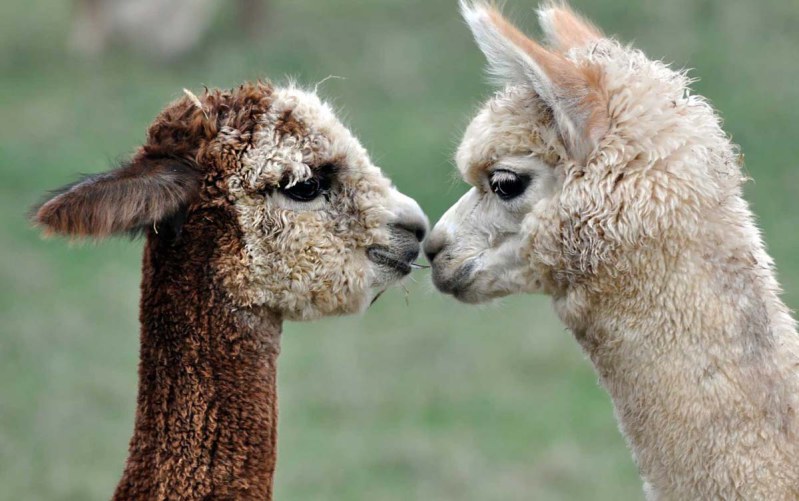
Where Do Alpacas and Llamas Come From Originally?
The majority of llamas live high in the Andes Mountains of Bolivia, while the majority of alpacas can be found in central and southern Peru as that is where they originated.
Alpacas vs. Llamas: What's the Difference?
While alpacas and llamas belong to the same family, Camelidae, and share some similarities, they have distinct characteristics.
Alpacas are smaller and more delicate than llamas, standing at approximately 36 inches tall at the withers and weighing between 100 to 175 pounds. Their fleece is incredibly soft and fine, making it highly desirable for fiber production. A baby alpaca is called a cria.
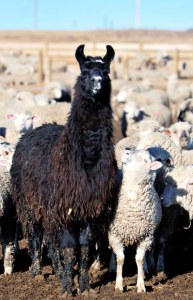 On the other hand, llamas are larger and sturdier, standing around 42 to 46 inches tall at the withers and weighing between 250 to 400 pounds. Llamas are primarily bred as pack animals and are known for their strength and endurance. And, Some farms use llamas as livestock guardians. Yes, llamas are elite fox chasers. They bond with sheep, alpacas, goats, deer, and even poultry, guarding them from predators. (See photo to the left of llama guarding a large flock of sheep).
On the other hand, llamas are larger and sturdier, standing around 42 to 46 inches tall at the withers and weighing between 250 to 400 pounds. Llamas are primarily bred as pack animals and are known for their strength and endurance. And, Some farms use llamas as livestock guardians. Yes, llamas are elite fox chasers. They bond with sheep, alpacas, goats, deer, and even poultry, guarding them from predators. (See photo to the left of llama guarding a large flock of sheep).
Shearing Alpacas: The Wooly Harvest
One of the primary reasons people raise alpacas is for their luxurious fleece. Alpacas are typically sheared once a year in the spring. Shearing is a meticulous process that requires skill to ensure the animals are comfortable and unharmed. The resulting fleece is known for its softness and is prized by artisans and crafters.
What Alpacas Eat: A Balanced Diet
Alpacas are herbivores and graze on a variety of plants, including grasses and hay. They have a unique digestive system that efficiently processes their food. Owners often provide them with high-quality hay, grass pastures, and supplements to ensure they receive the necessary nutrients.
Longevity and Care
Alpacas are relatively long-lived animals, with a lifespan of 15 to 20 years when well-cared for. Owners provide regular veterinary care, vaccinations, and grooming to ensure their alpacas remain healthy and happy.
Alpaca Wool Products: A World of Possibilities
The wool harvested from alpacas is highly prized for its softness, warmth, and hypoallergenic properties. It is used to create a wide range of products, including:
- Yarn: Alpaca yarn is popular among knitters and crocheters for its softness and warmth. It is available in various weights and colors.
- Clothing: Alpaca wool is used to make cozy sweaters, scarves, hats, gloves, and socks.
Raising Alpacas in North Carolina: A Fiber-Filled Journey
When you think of North Carolina, you might picture picturesque landscapes, lush greenery, and a thriving agricultural scene. Amidst this natural beauty, alpaca farms have found their niche, creating a unique and rewarding experience for both farmers and visitors. Though there are many alpaca farms in North Carolina, we would like to highlight some of the most popular farms in North Carolina such as Raynay Alpacas, Carolina Sunshine Alpacas, Minro Acres Alpacas, and Apple Hill Farms, while also delving into the differences between alpacas and llamas, shearing, alpaca wool, dietary preferences, lifespan, and the versatile items made from their prized fleece.
While there are many alpaca farms in North Carolina, we'd like to focus on some of the top farms such as the following:
RayNay Alpaca Farm - Ruffin, NC
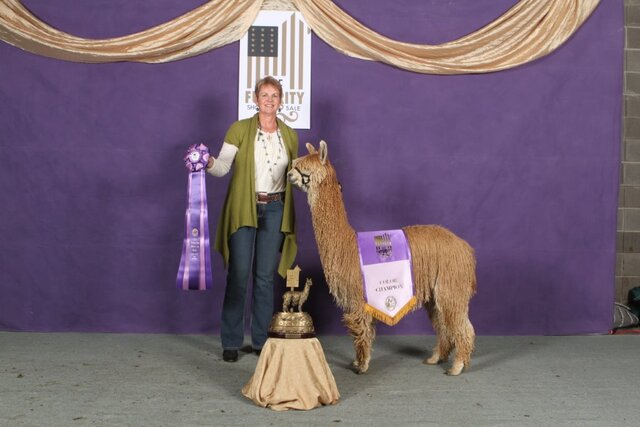
The folks at RayNay are very personable and easy to deal with. They breed and show their stock as well as offer animals for sale. Currently, they have 70+ alpacas on over 100 acres and 6+ Great Pyrenee dogs to guard the stock. They are fully immersed in the show circuit, and eager to assist anyone who would like to get involved raising alpacas. Tours are available by appointment and they do have a small store with alpaca items for sale.
They are located at: 1897 Ashland Rd, Ruffin, NC 27326 | Phone: (336) 939-3645
Minro Acres Alpaca Farm - Burlington, NC.
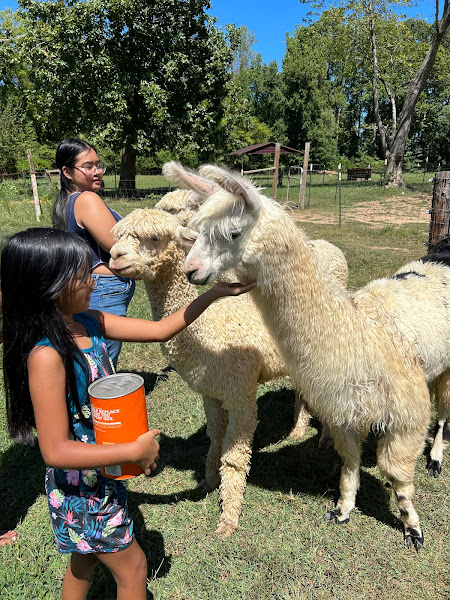
The Minro Acres Alpaca farm offers tours and educational events. A wonderful learning experience for students and adults alike. Reservations in advance are required. This farm is definitely a destination. A store is also available to purchase alpaca items.
They are located at: 2465 Carolina Rd, Burlington, NC 27217 | Phone: (919) 625-3720
Carolina Sunshine Alpaca Farm - Pittsboro, NC
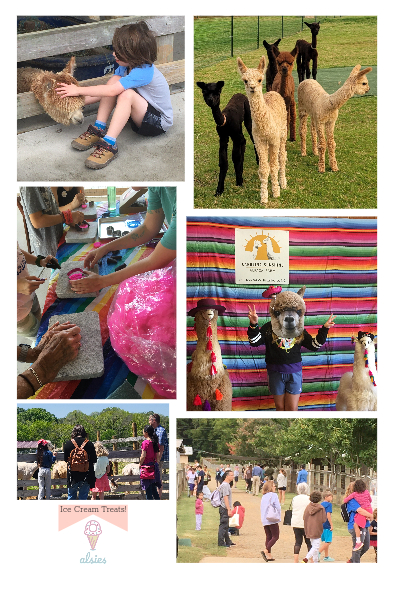
The Carolina Sunshine Alpaca Farm provides tours and also offers event spaces for parties, birthdays, and more. Register your group in advance for a one-hour private, guided PacaTour. A store is also available to purchase alpaca items.
They are located at: 7084 US-64, Pittsboro, NC 27312 | Phone: (919) 542-4003
Apple Hill Mountain Top Farm - Banner Elk, NC
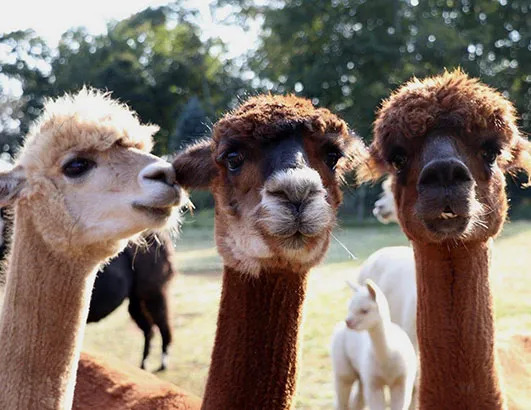
At Apple Hill Farms, they not only raise Alpacas, but also have Llamas, Angora Goats, horses, some cows, a few pigs and livestock guardian dogs. They are a family-owned, working fiber farm in the mountains of North Carolina. They love having folks come in to tour the farm and participate in many community activities. They also offer a lovely store with alpaca items and local jams and jellies to mention a few. Reservations are required to tour the farm. Spend the day in the mountains, breathe the fresh air, and enjoy a visit to this lovely farm.
They are located at: 400 Apple Hill Road, Banner Elk, NC 28604 | Phone: 828-963-1662
~ ~ ~
Are there any Alpaca farms in the state where you live? Have you ever been to visit one? If you like, please send a picture of you and/or your family visiting an Alpaca farm and we may post on this page. Looking forward to hearing from you!
We hope when you have the opportunity to visit North Carolina, you will book a tour with one of these Alpaca Farms.

